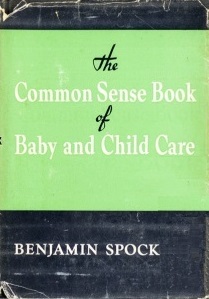Seventy-five years ago this week, The Common Sense Book of Baby and Child Care by Benjamin Spock was first published.
That’s Doctor Spock, so relax, Trekkies among us.
Only a handful of books published throughout history could have other books written about them. This is one of them.
It sold more than 50,000,000 total copies in several dozen languages. From 1946 to the late 90s, most people agreed the only book to sell more copies was the Bible.
Any time something gains such prominence as this book did, a natural outcome is to create many supporters and a significant number of detractors. (Sort of like the Bible.)
Same holds for the author who gave millions of parents a guidebook but was also blamed by many for having a hand in the “undisciplined” and permissive 1960s. Basically, everything wrong in the 1960s and 1970s was his fault, to critics of his methods.
The book has been updated nine times after its original edition, the latest in 2018. One of the darker legacies of the book was the original recommendation to have babies sleep on their stomachs, which later was found to dramatically increase the chances of sudden infant death syndrome (SIDS). This advice was changed in updated editions.
The author also didn’t seem to follow his own advice with his own family, which complicated the legacy of Dr. Spock, who died in 1998 at the age of 95.
But the substantial influence of the book, good or bad, is undeniable.
Book publishing has historical “markers” along its highway which, when you pull over and read about them on the roadside plaques, explain why things happen the way they do. There are few things in publishing today that do not have roots somewhere in the past.
Some of those markers are business processes, like the Internet and Amazon. Others are influential, game-changing people. But mostly the historical markers are books and authors. For certain, Dr. Benjamin Spock and his childcare book is one of those.
An aspiring professional author should study these publishing markers and the books and authors who preceded them in their genre. Consider it intelligence-gathering before you start a business. For certain, if you write in the parenting category, understanding Dr. Spock’s advice that influenced parents (and grandparents) is important.
Did you know Christian publishing as an organized industry is a relatively recent occurrence in the overall history of publishing? There are publishing and literary pioneers in Christian publishing who are still around today. You don’t have to go too far back in collective memory before you bump into people who paved the way.
You can meet them here and there, by pulling over at historical markers.
If you ignore or dismiss the past and those who came before you, you create a world lacking in thankfulness, appreciation, and wisdom.
May this not be said of any of us.










